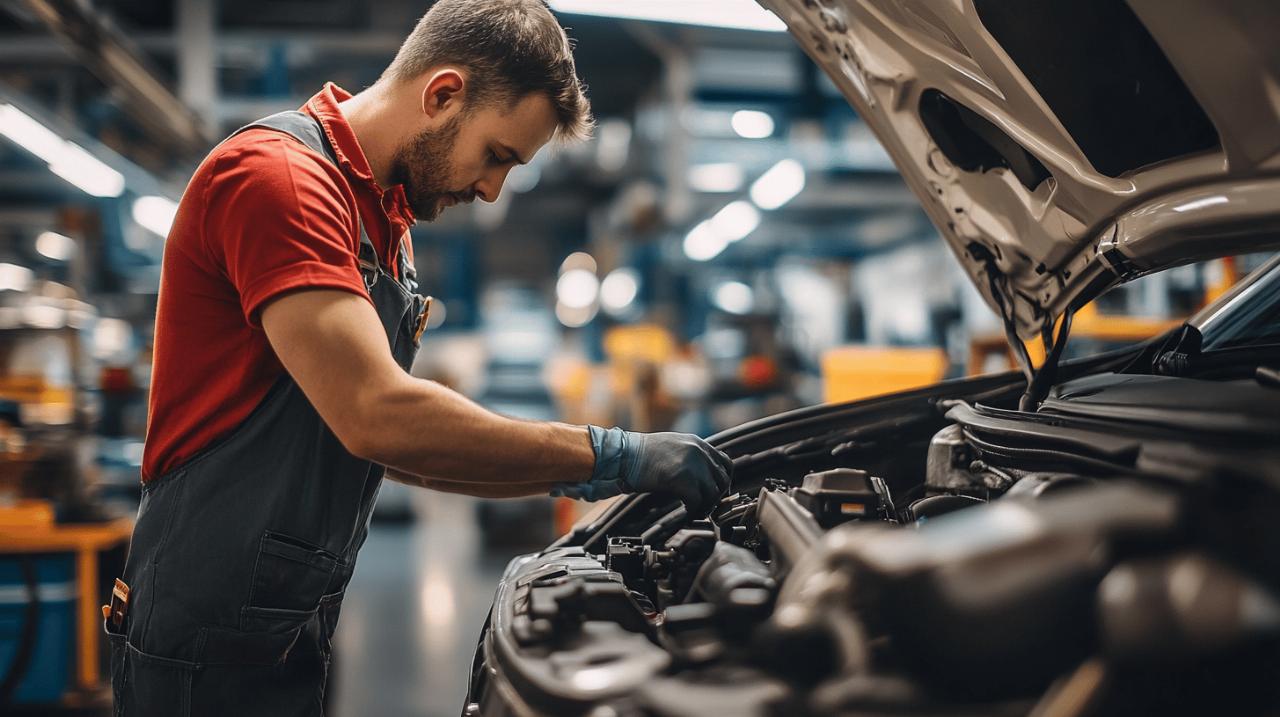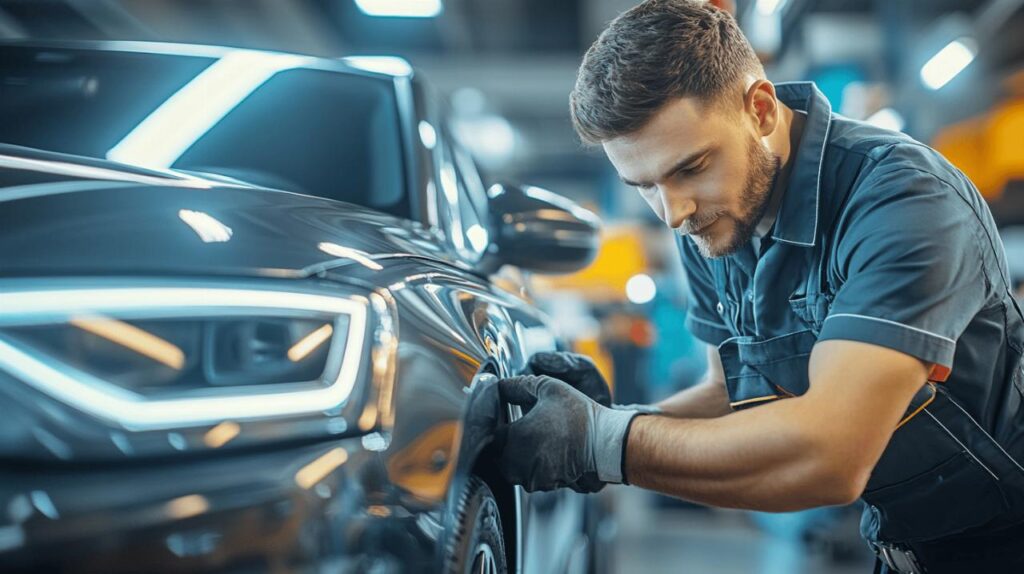Keeping your car in tip-top condition isn’t just about ensuring it looks good on the road—it’s about maximising performance, safety, and the lifespan of your vehicle. Regular maintenance helps prevent costly breakdowns and keeps your car running at its best. With proper care, you can significantly extend your vehicle’s life beyond the average scrapping age of 14 years. Let’s explore the essential aspects of car maintenance that every motorist should know.
Regular servicing: the cornerstone of car maintenance
Comprehensive servicing is the foundation of proper vehicle care. According to AutoRegional 15 statistics, most cars remain on British roads for about 8 years, though with proper maintenance, this can be significantly extended. Adhering to a regular service schedule is crucial for catching potential problems early and ensuring optimal performance.
Understanding manufacturer service schedules
Every vehicle comes with specific maintenance recommendations from the manufacturer. Generally, you should arrange for a minor service annually and a major service every two to three years. These scheduled services typically include oil and filter changes, comprehensive fluid checks, and thorough inspections of critical components such as brakes, suspension, and steering systems. Following these schedules meticulously helps maintain your warranty and preserves your vehicle’s value.
Finding a Trustworthy Garage for Your Motor
Establishing a relationship with a reliable garage is essential for consistent maintenance. Look for establishments with proper accreditations and positive customer reviews. Many garages now offer specialized services for specific makes and models, which can be particularly beneficial for high-performance vehicles requiring specialized care. A good mechanic will maintain detailed service records and communicate clearly about any issues found during inspections.
Fluid management: keeping your car well-lubricated
Proper fluid levels are essential for your vehicle’s mechanical health. Regular checks and timely top-ups can prevent significant damage to engine components and other systems.
Essential fluids to monitor weekly
Make it a habit to check your fluid levels every fortnight. Essential fluids include engine oil, which lubricates moving parts and prevents wear; coolant, which regulates engine temperature; brake fluid, critical for stopping power; power steering fluid, which ensures smooth steering; and windscreen wash, which maintains visibility. These simple checks take mere minutes but can prevent costly repairs and dangerous situations on the road.
Proper Techniques for Checking and Topping Up
When checking your engine oil, ensure the car is on level ground and the engine has been off for at least ten minutes to allow oil to settle in the sump. Use the dipstick to verify levels, and top up with the correct grade of oil if needed. For coolant checks, only open the reservoir when the engine is cool to avoid scalding. Brake fluid and power steering fluid should be maintained at the levels indicated on their respective reservoirs. Using the correct type of fluid for your specific vehicle is crucial—consult your owner’s manual if unsure.
Tyre care: the critical contact point
Tyres are your only point of contact with the road, making their maintenance essential for safety, handling, and fuel efficiency.
Maintaining proper tyre pressure
Check your tyre pressures weekly, ideally when the tyres are cold. Incorrect pressures can lead to uneven wear, reduced grip, increased fuel consumption, and potentially dangerous handling characteristics. The recommended pressures for your vehicle can be found in the owner’s manual, inside the fuel filler flap, or on the driver’s door pillar. Investing in a reliable pressure gauge and perhaps a portable compressor can make this task more convenient.
Spotting Signs of Wear and Tread Depth Measurement
Regular tread depth checks are vital for safety. While the legal minimum in the UK is 1.6mm, experts recommend changing tyres when the tread reaches between 2mm and 3mm for optimal grip, especially in wet conditions. Look for uneven wear patterns, which might indicate alignment or suspension issues. Also inspect for bulges, cuts, or objects embedded in the tread. Rotating your tyres every 5,000 to 7,000 miles helps ensure even wear and extended tyre life.
Brake system maintenance: safety first
 Your vehicle’s braking system is perhaps its most critical safety feature. Regular inspection and timely maintenance are non-negotiable aspects of responsible car ownership.
Your vehicle’s braking system is perhaps its most critical safety feature. Regular inspection and timely maintenance are non-negotiable aspects of responsible car ownership.
Warning signs of brake wear
Be attentive to warning signs that your brakes need attention. These include a squealing or grinding noise when braking, a pulsating brake pedal, the vehicle pulling to one side during braking, or increased stopping distances. Modern vehicles also feature brake wear indicators on the dashboard, which should never be ignored. Remember that using your brakes properly—rather than shifting down gears to slow—helps prevent unnecessary wear on your drivetrain.
When to Replace Pads and Discs
Brake pads typically need replacement every 25,000 to 50,000 miles, though this varies based on driving habits and conditions. Discs generally last longer but should be inspected whenever pads are replaced. When replacing these components, avoid economising on parts quality; using original or equivalent quality parts ensures reliable braking performance and maintains your vehicle’s value. Many garages offer free brake checks, making regular inspections both easy and affordable.
Cleaning and detailing: preserving your car’s condition
Regular cleaning isn’t merely cosmetic—it’s an important aspect of preventative maintenance that protects your vehicle’s bodywork and interior from degradation.
External Cleaning to Prevent Rust and Corrosion
Washing your car regularly removes contaminants like road salt, grit, and bird droppings that can damage paintwork and eventually lead to corrosion. Waxing your vehicle every six months provides an additional protective layer against environmental damage. For older vehicles, consider professional rust-proofing treatments to extend body panel life. If possible, park your car in a garage or use a quality car cover to protect it from the elements, vandalism, and theft.
Interior Maintenance for Comfort and Value
Regular interior cleaning preserves both comfort and resale value. Vacuum the upholstery and carpets regularly to prevent dirt from becoming embedded in fabrics. Use appropriate cleaning products for different interior surfaces—leather, fabric, plastic, and wood each require specific care. Don’t forget to clean air vents and replace cabin air filters regularly to maintain air quality inside the vehicle. Keeping unnecessary weight out of your car also improves fuel economy and reduces wear on tyres, brakes, and suspension components.
Addressing minor issues before they escalate
Being proactive about small problems can prevent them from developing into major, expensive repairs. Timely intervention often saves both money and inconvenience.
Common warning signs you shouldn’t ignore
Pay attention to unusual noises, vibrations, or smells, as these often indicate developing problems. Dashboard warning lights should be investigated immediately, not dismissed or covered with tape. Other signs that warrant attention include fluid leaks beneath your vehicle, difficulty starting, rough idling, or unusual exhaust smoke. Using your air conditioning regularly, even in winter, helps prevent refrigerant gas leaks and maintains system integrity.
Diy fixes versus professional repairs
While some maintenance tasks are suitable for DIY enthusiasts—such as checking fluids, replacing wiper blades, or changing air filters—others require professional attention. Modern vehicles often feature complex electronic systems that need specialized diagnostic equipment. Know your limitations and don’t attempt repairs beyond your expertise. Establish a relationship with a trusted mechanic who can advise on which issues you can handle yourself and which require professional intervention. Remember that proper maintenance records enhance your vehicle’s resale value and provide peace of mind for the next owner.


